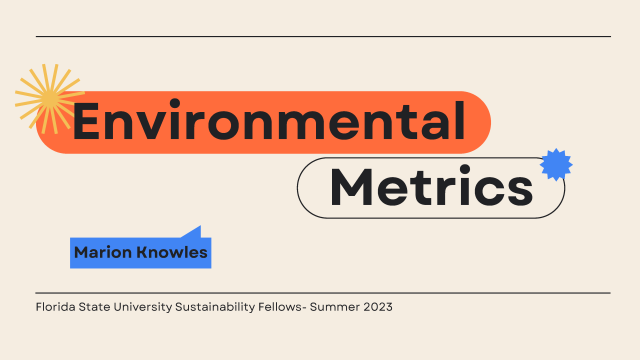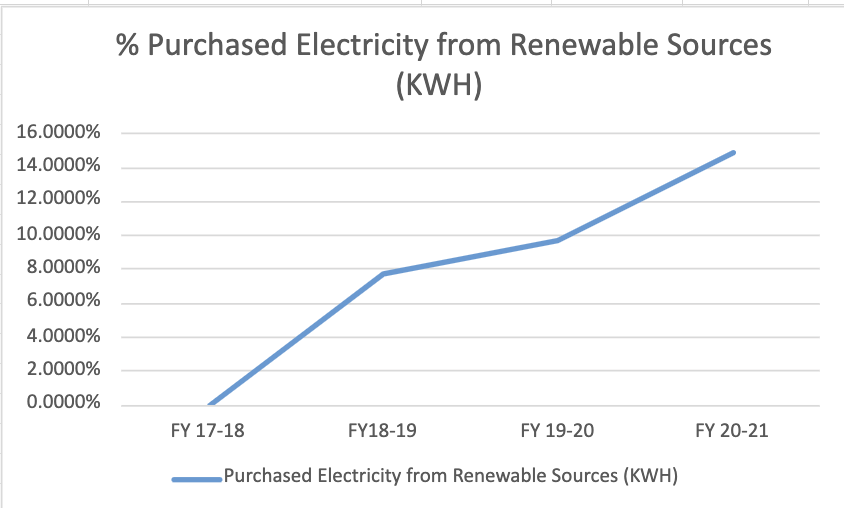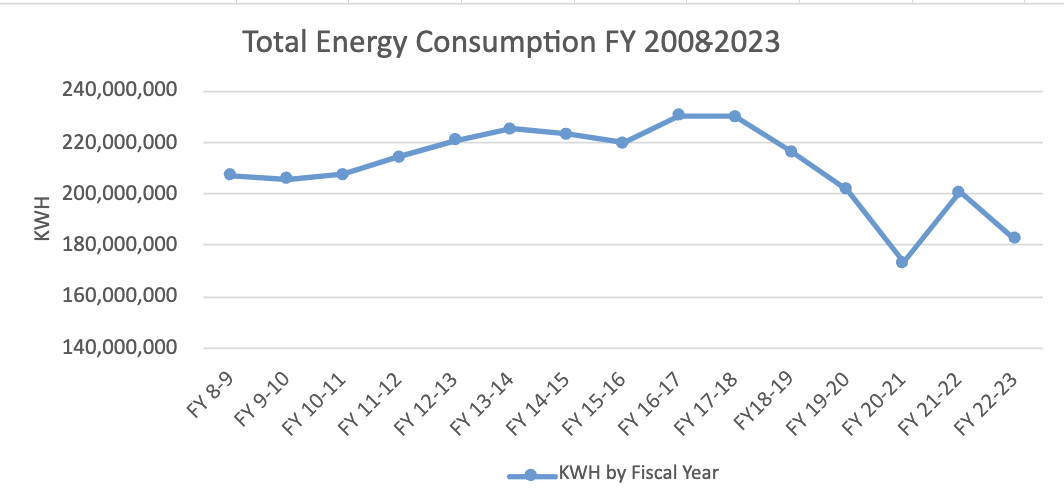Summer 2023 Sustainability Fellow: Marion Knowles

Partner: Sustainable Campus
Project: FSU Annual Environmental Metrics Report
Student: Marion Knowles
During the summer semester of 2023, Marion, a graduate student pursuing a joint pathway in Urban and Regional Planning and Public Administration, worked with Sustainable Campus on a critical project: gathering FSU's environmental data.
The importance of data in showcasing the value of sustainability cannot be overstated. Tracking consumption patterns, resource utilization, and carbon footprint trends at the university level is pivotal for demonstrating how sustainability aligns with strategic planning processes. Both Sustainable Campus and Facilities need the capability to exhibit longitudinal tracking. While much of the required data exists, it is dispersed across various sources, lacking a centralized platform that facilitates filtering, sorting, analysis, and sharing.



Having previously graduated from Florida State University's Political Science Program, Marion is particularly intrigued by sustainability policy in Florida and the ongoing commitment to environmental stewardship within the state.
"Sustainability is the practice of balancing ecosystem health and the demand for natural resources to ensure future prosperity. Sustainability involves using resources to their maximum efficiency, redesigning infrastructure to withstand future changes, and changing business practices. Broadly, sustainability challenges individuals, businesses, and governments to change decision-making procedures to support the collective rather than the individual." Marion said.
Given her inclination towards data analysis and pattern recognition, this project was an ideal match for Marion. She finds joy in delving deep into data. 
"Personally, there is nothing more exciting than evenings holed up in the furthest corners of Strozier researching my latest curiosity. Like puzzles, I pick them apart, finding critical information and building a larger picture." Marion explained.
The majority of Marion's project involved determining available data, collecting it, and performing analysis to underscore the significance of sustainability to leadership and other pertinent stakeholders. This initiative specifically revolves around centralizing environmental resource consumption data into a unified document, streamlining the recording process and aiding Florida State University in minimizing its carbon footprint.
FSU has had some big sustainability wins in recent years, including saving over 9 million plastic water bottles by utilizing hydration stations around campus, cataloging 335 sustainability related courses in 2022, and recycling 102 tons of E-waste in 2019. There also seemed to be a decrease in energy consumption during the COVID-19 pandemic which Marion determined to be a false positive as most people were at home, and not at the university. 
Her initial steps encompassed thorough research and modifications to spreadsheets, where she familiarized herself with terms and measurements related to air emissions, energy consumption, waste, and land use. Subsequently, she engaged in data entry, documenting information from sources like the STARS report, the Department of Environmental Protection, SIMAP, and internal records. Lastly, she developed visualizations to effectively communicate the outcomes of her efforts.
Before Marion's involvement, information was scattered across multiple documents or not recorded at all. Now the team at Sustainable Campus can compile environmental data into one place and have a better understanding of the university's successes and opportunities for improvement.
To view Marion's final presentation, click here.
To learn more about the Sustainability Fellows program, visit https://sustainablecampus.fsu.edu/sustainability-fellows.

